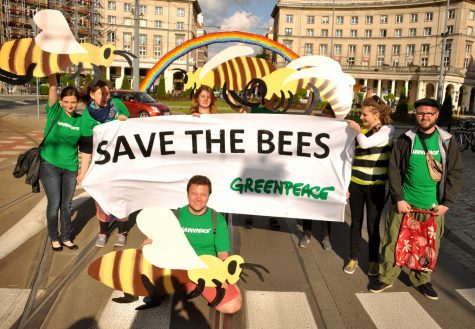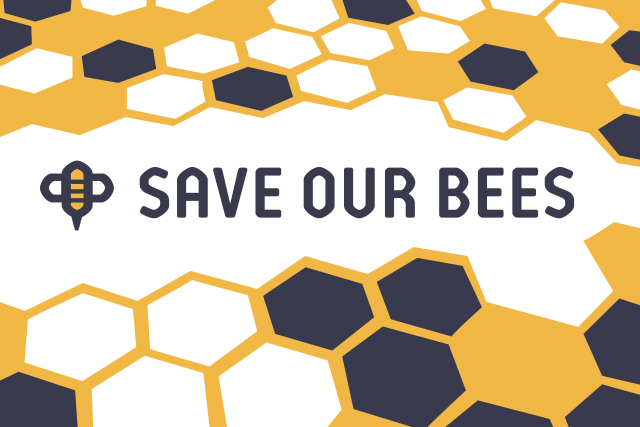Save the Bees
Save these endangered pollinators before “endangered” turns to “extinct.”
January 22, 2018
Honeybees perform about 80% of all pollination in the world. That means that 70% of humanity’s food crops and the supply of 90% of worldwide nutrition are pollinated by these creatures. But these creatures that most of us take for granted might not be able to do this for long—this important species of pollinators is endangered and could be going extinct in the surprisingly near future.
Their numbers have been decreasing especially rapidly since 2006, and the problem has only gotten worse. Not only do humans take honeybees for granted; we are the dominant reason why they are dying out, which is predominantly due to pesticides and wide habitat loss. Other factors include drought, nutrition deficit, air pollution, and global warming. This matters because, as Greenpeace states, “The number of working bee colonies per hectare provides a critical metric of crop health. In the U.S.—among crops that require bee pollination—the number of bee colonies per hectare has declined by 90 percent since 1962.”

Although this issue has a gravity that is beyond comprehension for most people, there can be solutions that can postpone, at least, the extinction of honeybees. One way people can help the issue is “by not killing them, but not just not killing them, but by making a rule that they’re not allowed to be killed until they’re not endangered anymore,” said Sophia Tarpinian (’20). Easier said than done, but we can work towards that goal by establishing certain legislations and procedures. These include banning pesticides, or at least a few of the most dangerous ones. Preserving wild habitats is also a solution. Primarily, however, we need to initiate a Step 1: raising awareness. People need to know how crucial the honeybees are before blindly spraying Sulfoxaflor on their crops.
Albert Einstein once said that, “Mankind will not survive the honeybees’ disappearance for more than five years.” He’s right, too—no other animal plays as crucial a role in the production of fruits and vegetables. Honeybees impact humanity at the most significant level of the food chain. “The real problem is that no one knows or cares, so it’s just going to keep happening and the bees will keep dying, and you know, then people will die too,” said Daniela Illyayev (’20). “People need to get educated about the problem and then do something.”
“I learned about it through an episode of Black Mirror, and it’s just so scary and I hope people start taking, like, real action,” Illyayev said. Season 4, Episode 3 of Netflix’s science-fiction show, Black Mirror, is centered around what humanity did to counteract the extinction of honeybees. The solution included building pollinating mechanisms that look like robotic bees to fly around the world and perform the crucial role the species plays. The backlash of this solution included someone hacking the hive mechanisms, getting control of the bees, and using them to go into people’s heads and kill them. This episode was probably meant to raise awareness about potential consequences.
Watch Season 3 Episode 6 of Black Mirror and research this grave problem, and you’ll have a shift in perspective too.

















































































































































